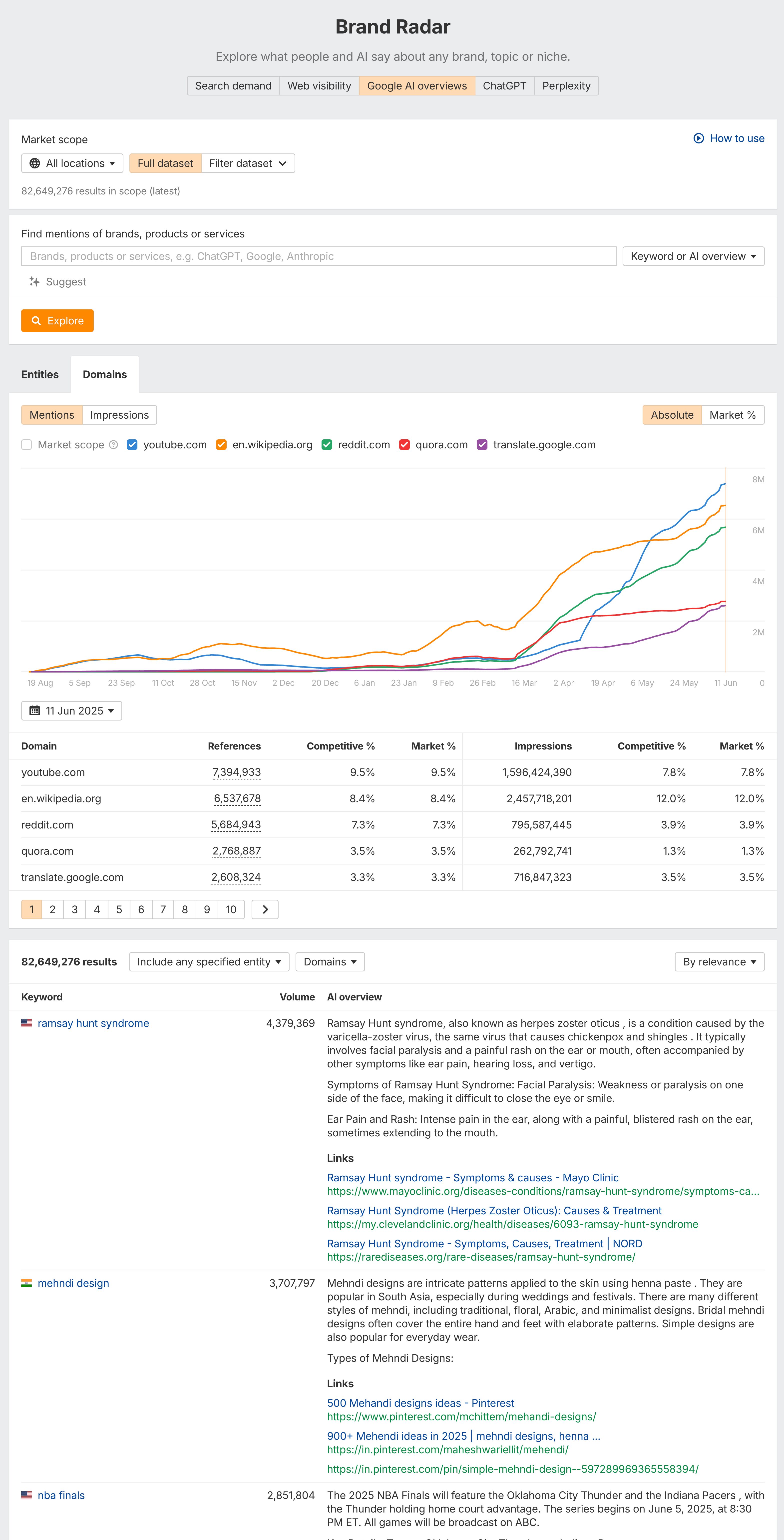AI Assistants may also work slightly differently. By default, they don’t have any notion of websites and can make up sources. Looking at you ChatGPT.
Some systems are augmented with search, where they retrieve documents first and they’re less likely to hallucinate results. Some bias towards partners that they paid to license the data.
Looking at the top 50 most mentioned websites in Ahrefs Brand Radar for AI Overviews, ChatGPT, and Perplexity, only 7 websites are in the top 50 results for all of them.
This is across ~76.7M AI Overviews, 957k ChatGPT prompts, and 953.5k Perplexity prompts for the month of June 2025.
Here’s what Brand Radar looks like.

Here’s the overlap:

And here’s what is included in each:

Systems work in slightly different ways. For example:
| Platform | How it chooses citations |
|---|---|
| Perplexity | Real-time web search → ranks → quotes → cites best matching source |
| ChatGPT (with browsing) | Search → filters for trusted/licensed domains → cites |
| ChatGPT (default) | No citations unless prebuilt → may hallucinate |
| Google AI Overviews | From search index → curated citation list |
| Bing Copilot | Uses Bing search → highlights snippets → includes citations |
Various biases and different methodologies mean that even for the same queries, these systems may cite completely different websites.
There are going to be additional biases introduced based on the types of sites blocking AI bots and those that render JavaScript like Google, vs those that don’t, which is most of the rest of them.
Google AI Overviews lean towards the same top sites we’re used to seeing in search results. There’s a heavy emphasis on authoritative websites for health, finance, encyclopedic knowledge, social media, as well as a bias for Google-owned properties. Notably missing are media sites, non-Google entertainment sites, and ecommerce sites.
ChatGPT leans more on publishers and non-Google media, especially for news, entertainment, and sports. They have licensing deals and partnerships with many of the cited websites. ChatGPT doesn’t have much around health or medicine.
Perplexity pulls from a broader international corpus. There are many local and regional brands that weren’t in the top 50 for the other AI assistants. Perplexity doesn’t have social websites or traditional Western media.



